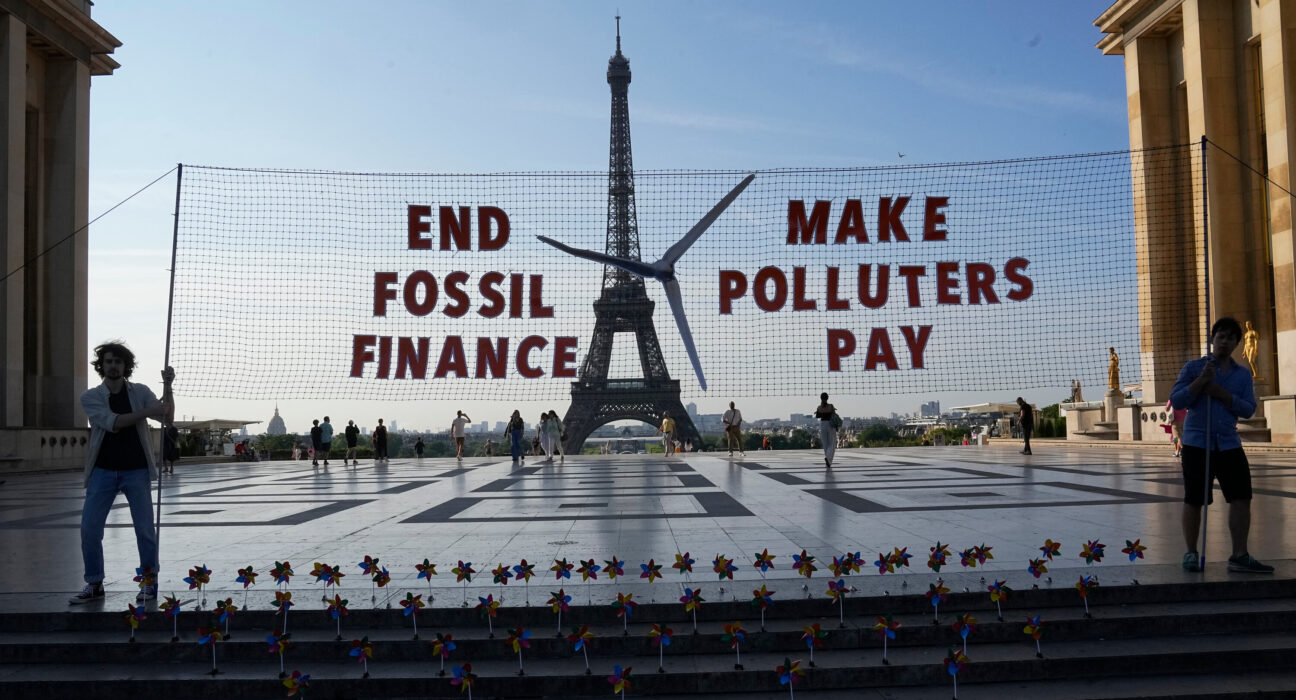Mukhtar Babayev, the COP29 President and Special Representative of the President of Azerbaijan for Climate Issues, highlighted a significant irony unfolding this year in the realm of climate finance. The year 2025 was anticipated to mark a transformative era in climate finance, with donor countries poised to bolster their support for developing nations following the commitments made during the signing of the Paris Agreement in 2015.
The Baku Finance Goal agreement at COP29 outlined an ambitious target of $300 billion annually by 2035, representing a substantial three-fold increase from current funding levels. However, contrary to expectations, there is a disheartening trend where donors are retracting rather than enhancing their contributions. This shift is resulting in funds being diverted away from vulnerable communities grappling with the immediate impacts of the climate crisis.
Governments are redirecting financial resources towards military expenditures while simultaneously reducing budgets allocated for climate finance and aid initiatives. This unexpected turn of events stands in stark contrast to the envisioned decade marked by solidarity and proactive measures against climate change. Developed nations were initially expected to take the lead in supporting climate action efforts, making it particularly challenging for impoverished regions reliant on external assistance.
As Mukhtar Babayev lamented,
“Developed countries were supposed to take the lead. It is a bitter pill for the world’s poorest to swallow.”
The failure to uphold these commitments raises concerns as countries gear up to submit their next set of climate plans aimed at curbing emissions effectively.
With global efforts focused on limiting temperature rise to 1.5 degrees Celsius, developing countries’ ability to reduce emissions hinges significantly on receiving reliable support from wealthier nations. However, without this essential backing, achieving emission reduction targets becomes increasingly precarious.
Reflecting on this predicament, COP Presidents find themselves grappling with how best to ensure that agreements forged are faithfully executed. The absence of a formal enforcement mechanism within international governance structures poses challenges in holding countries accountable for their pledges.
While there have been discussions around reforming climate governance frameworks, enforcing compliance remains elusive due to inherent limitations within existing structures. Some nations have taken commendable steps by enshrining commitments into domestic legislation; nevertheless, widespread adherence remains an ongoing issue.
Transitioning away from fossil fuels represents a critical step towards mitigating climate change impacts globally. Despite lacking formal enforcement mechanisms on an international scale, reliance is placed on shared norms and values among world leaders committed to collective action against climate change.
Mukhtar Babayev emphasized that relying solely on goodwill and trust may not suffice if governments renege on their promises – eroding faith and fostering resentment among stakeholders involved in climate negotiations. Notably, many donor countries appear detached from past commitments when convening at ministerial meetings focusing on addressing climate change challenges.
The urgency surrounding adaptation finance underscores its significance as an essential tool in assisting communities vulnerable to climatic shifts adapt effectively. The Glasgow Pact pledge originating from COP26 necessitates developed nations doubling their financial support by 2025—a crucial litmus test signifying commitment towards achieving broader financial goals by 2035.
Acknowledging evolving global dynamics as justification for wavering commitment levels falls short given that these targets were designed precisely for navigating uncertain times collectively.
The Green Climate Fund’s ongoing reforms aim at streamlining accreditation processes deemed slow and cumbersome—seeking efficiency amidst shifting donor priorities and evolving financial landscapes.
In urging developed nations to honor their pledges unequivocally Mukhtar Babayev asserted that maintaining integrity through fulfilling promises made underpins effective collaboration within global efforts combating climate change proactively.
In conclusion,
“The burden lies heavily upon leaders faced with intricate decisions amidst competing demands; however veering off course risks tarnishing established systems—underscoring why upholding promises constitutes fundamental pillars underpinning sustainable progress.”
It is imperative that affluent nations spearhead initiatives reinforcing trust through tangible actions ensuring promises translate into impactful outcomes driving meaningful change globally ensuring equitable responses aligned with urgent climatic imperatives ahead striving together collectively champion solutions mitigating escalating environmental threats looming large.

